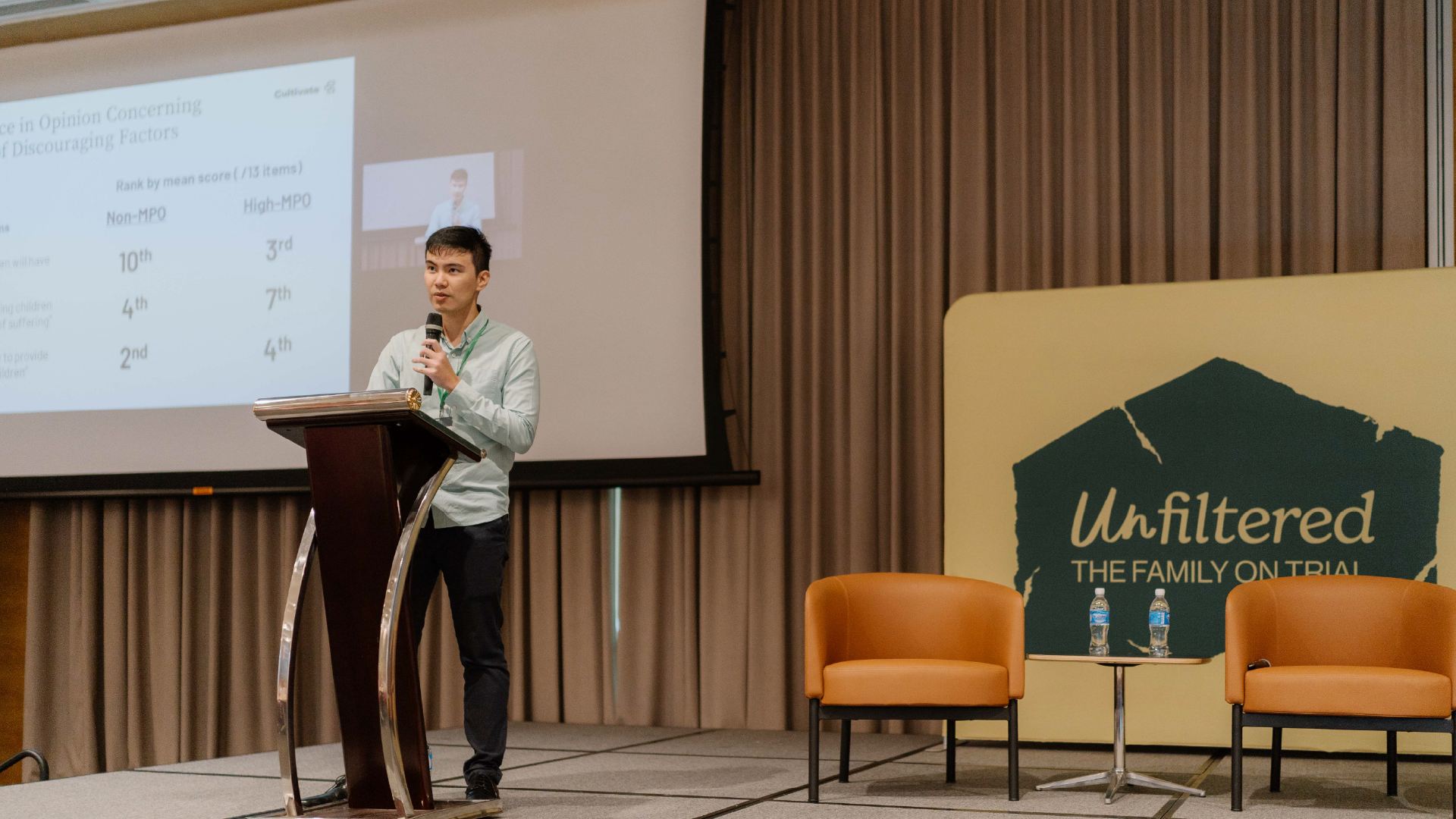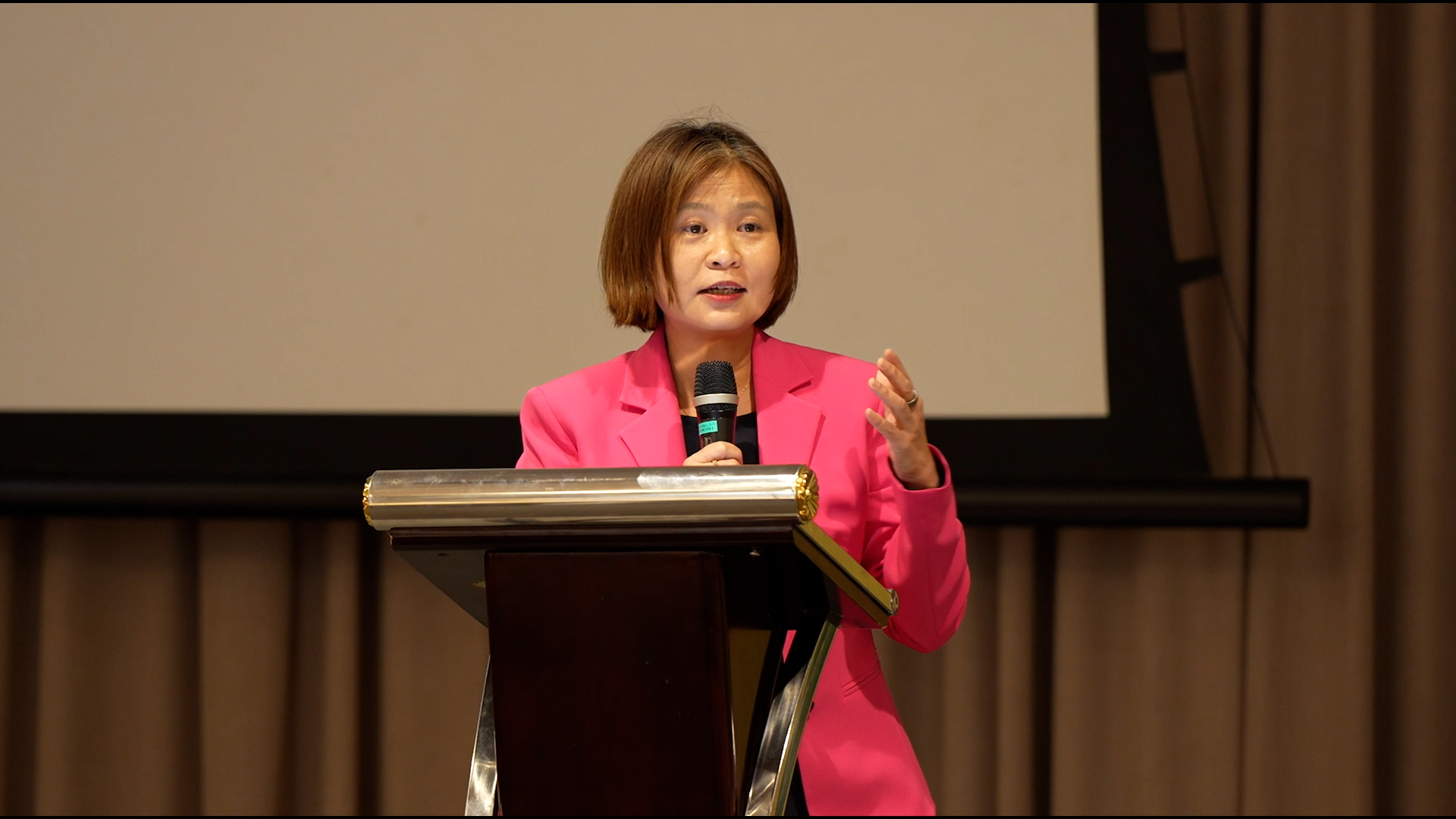“Congratulations! The baby is born!” But… now what?
Welcoming a newborn into the family is a joyous and life-changing experience. However, reality soon hits.
The new parents find themselves in a world of round-the-clock feeding and diaper-changing routines, sleepless nights and efforts to comfort a crying baby.
Parents of newborn children are thrust into a completely new lifestyle that radically transforms their lives. Before long, paternity and maternity leaves come to an end.
For working parents, a worrying thought soon descends: Who will take care of baby?
This is an increasingly common struggle, as dual-income households are now the norm. 2020 census data shows that a majority (52.5%) of married couples were dual-career couples where both husband and wife were employed.
In this conundrum of childcare, what are some options available to new parents?
Here are some options, by the numbers.
1. One parent stays home or reduces work
One option is for one parent to stay at home to take care of children, or to reduce their amount of work (e.g. by doing flexible or part-time work instead of full-time work).
A 2021 survey found that 40% of married respondents felt that ideally, the mother should take care of her children full-time. The figure was 24% among single respondents.
Reflecting these attitudes, there is a sizeable proportion of women who are stay-home mothers. According to 2022 statistics from MOM, there were 39,100 women who were not looking for work because they had to care for their own children aged 12 and below. Additionally, there were 2,400 unemployed women actively looking for jobs who had previously left their jobs to take care of their children.
Stay-home fathers are a much smaller group, and there do not appear to be recent statistics on their number. However, one group of Stay-at-Home Dads is The Ordinary Dad, “a community of fathers actively involved and engaged in the day-to-day upbringing of our children, as stay home dads and/or primary caregivers alongside our spouses”.
2. Help from grandparents
Grandparents could also assist with caregiving of young children.
Grandchildren certainly benefit from being cared for by grandparents who provide good influence, but there’s also been recent research that shows grandparents who help with non-custodial care for their grandchildren in fact experience health benefits, and live longer as a result. However, statistics suggest that grandparent caregivers tend to follow the gendered roles of the earlier generation, where caregiving of young children was traditionally undertaken by women.
As a 2019 research study of 439 mothers and their children by the Singapore Children’s Society found, grandmothers were typically the main caregivers when the children were 18 months-old. At 4 months of age, mothers were usually the main caregivers, and grandmothers were the second most common as main caregivers.
Our recently published survey also found that, during working hours (morning and afternoon) on weekdays, grandparents were the third most common as main caregivers of children (15%). Mothers were top as main caregivers (44%), followed by infant care, childcare or school (21%).
Something to bear in mind is that not all grandparents are willing or able to help with childcare. As one writer put it in a forum letter: “Most grandparents are retirees. They have the right to take life easier and pursue what they wish to do, which they could not do when they were working. Many may have various chronic ailments and may not be physically capable to cope with the demands of looking after young children.”
3. Domestic helper
The next option is employing a foreign domestic helper to provide care for children.
The abovecited study by the Singapore Children’s Society suggests that it is rare for domestic helpers to be the main caregivers for children, whether at 4 months, 18 months or 3 years of age.
Instead, it was more common to have a form of “combination care” involving various caregivers (including domestic helpers) at the same time. This was 13% of the sample at 4 months of age,
and for 1% and 3% of the sample at 18 months and 3 years of age respectively.
This is echoed by our survey as well, where only 8% of parents indicated that their domestic helpers were main caregivers during working hours on weekdays. On weekends, the figure was even lower, at 3%.
4. Institutionalised infant care
Institutionalised infant care, such as infant care centres or childcare centres, are perhaps another option. As mentioned above, our survey found that infant care, childcare or school were the second most commonly cited as main caregivers of children (21%), behind mothers (44%).
Government statistics show that, in 2023, there were around 14,600 centre-based infant care places. Of these, about 10,500 (72%) were taken up. The Government has also added that the Early Childhood Development Agency (ECDA) is working closely with Anchor Operators to build more than 1,500 new infant care places in 2024 and will continue to ramp up supply beyond 2024.
Beyond that, the Government has also announced in 2024 a new childminding pilot plan “to develop affordable, safe, and reliable childminding services as an additional infant care option for families”. Under this plan, each childminder will be allowed to care for up to three infants at any one time, at the childminders’ homes or at community spaces, such as community centres or community clubs.
Options, Trade-offs and Risks?
Beyond the options cited above, other options might include nannies or some other kind of arrangement such as arranging for relatives (e.g. the child’s uncles or aunts) to help take care of the child.
However, like anything else in life, there are always various trade-offs and risks involved.
For example, having one parent stay at home to take care of children might not be feasible for all families in a country like Singapore, where cost of living is high.
There could also be various reasons why grandparents or relatives may not be an option for childcare. These could be because of poor relationships, differences in attitudes towards upbringing of children, apart from other factors like willingness or ability.
Beyond that, there is always an issue of trust, given the vulnerability of children and risks of abuse. Parents are understandably horrified to hear of shocking news reports of ill-treatment of children at pre-schools, and reports of domestic helpers who have abused children.
In one deeply tragic and heartbreaking report, a six-month-old baby died while under the care of a nanny. Even though the coroner was unable to pinpoint a definitive cause of death, reports such as these would certainly make parents think twice about putting their child in the care of nannies.
When considering whether to place very young children in infant care or childcare, parents would also understandably be concerned about these places being “disease central”, with many reports of children falling ill repeatedly after attending infant or childcare.
Any Solution to the Conundrum?
Given the trade-offs and risks involved with every single option, the childcare conundrum remains
a very difficult knot to untie.
As a result, we are faced with a sad reality that society is having fewer and fewer children, with Singapore’s resident total fertility rate (TFR) falling to an all-time low of 0.97 in 2023.
It seems like many Singaporeans are saying: If there is no way to care for baby, it is better not to
have a baby at all.
To try to solve the issue, the Government has been making policy changes to help resolve the tension between work and caregiving of children. One of these is the Tripartite Guidelines on Flexible Work Arrangement Requests which comes into effect this December, requiring employers to fairly consider employees’ requests for flexible work arrangements. Another set of changes were recently announced at the recent National Day Rally, where 4-week paternity leave will be made mandatory, and parents of newborns will get an additional 10 weeks of Shared Parental Leave. Fees at government-supported preschools will also be lowered.
Will these be enough, or too little too late?
Or could it be that there are some things in life that should not be completely outsourced to others, such as parenting? Might it be time for us to rebalance our priorities as individuals and as a society?


